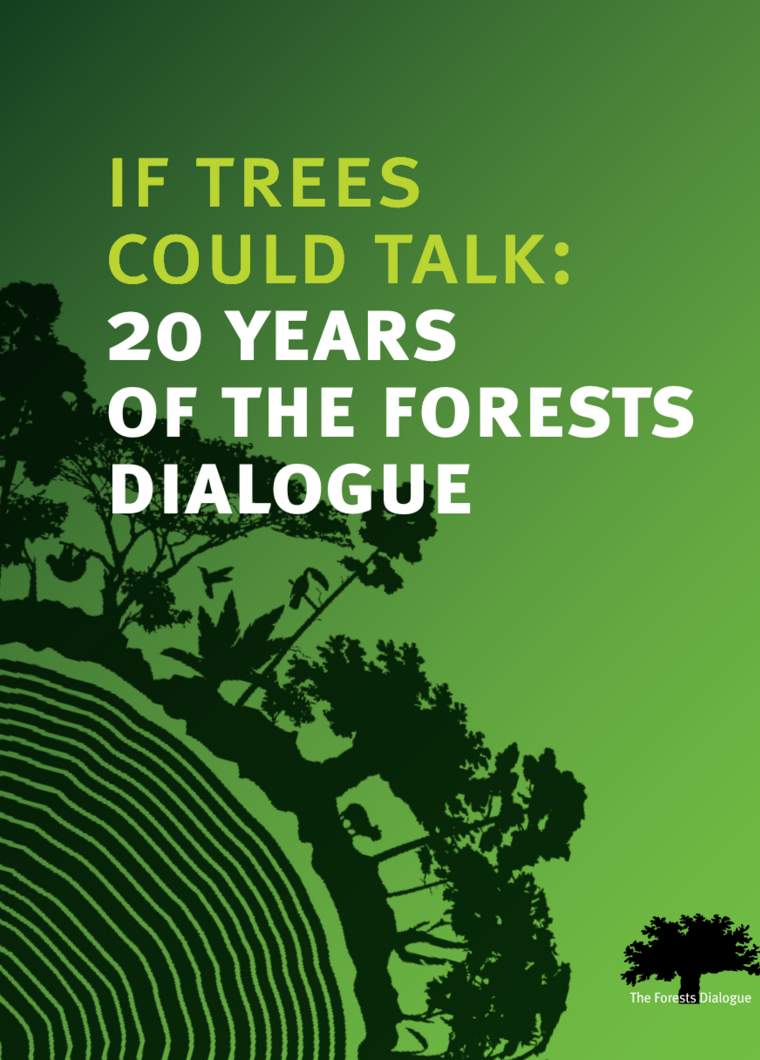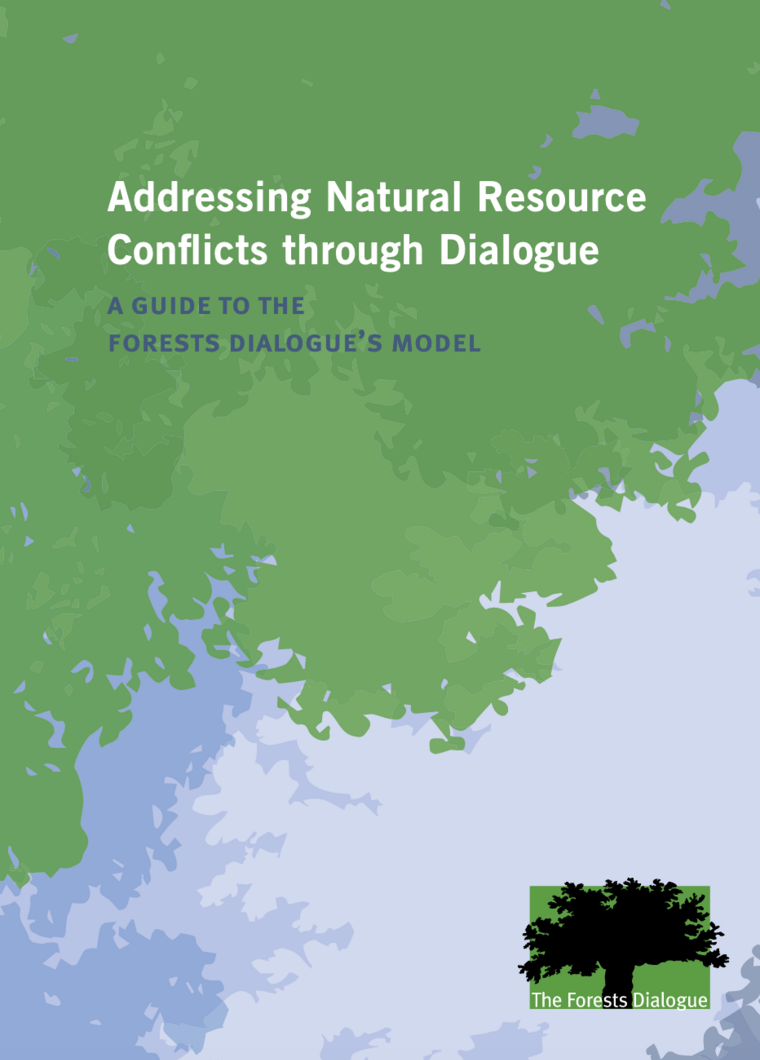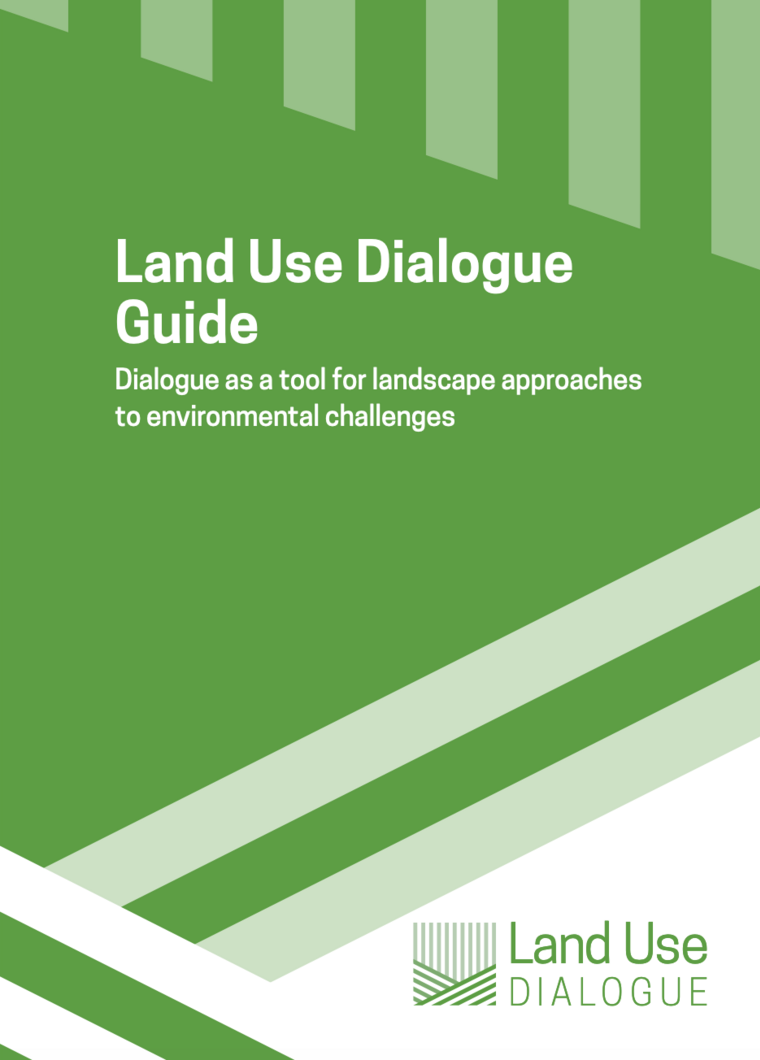Publications
The Forests Dialogue produces and publishes a variety of documents - maintained in a comprehensive library below. The majority of TFD publications are developed through TFD’s initiative process, including the following major publication types. In the lead-up to an initiative, a foundational Scoping Paper is produced to provide context for the scoping dialogue. Background Reports that provide stakeholders with relevant location-specific content are created for each subsequent dialogue following the scoping dialogue. At the conclusion of a dialogue, the co-chairs, with help from the TFD secretariat, produce a Co-chairs’ Summary Report that captures the key perspectives, discussions, agreements, and next steps from the dialogue. At the conclusion of an initiative, the Advisory Group, co-chairs, select leaders, and the Secretariat synthesize the initiative’s conclusions into a TFD Review. Additionally, Country Reports that aggregate learnings from a number of country-specific dialogues are typically produced for initiatives that involve numerous country-level dialogues, including TFD’s REDD+ dialogues. TFD also facilitates the production of guides and policy recommendations including a guide to the TFD process, the Land Use Dialogue methodology. These are geared towards practitioners or policy makers and contain actionable steps that stakeholders can take to enact change based on learnings gathered through the TFD process.
Navigate TFD’s extensive publication database using the search function below, or visit specific dialogue or initiative pages to see their associated publications.
This short briefing paper has been written just to convey some basic information about the country and the area to be visited by this field dialogue to help people understand some of the complexity and challenges.
The Forests Dialogue (TFD) held a two-day multi-stakeholder dialogue on Investing in Locally Controlled Forestry (ILCF) in London on 24–25 May, 2010.
This paper offers basic information regarding the framework required to develop and
implement activities for Reducing Emissions from Deforestation and forest Degradation
(REDD) in Ecuador. It was prepared as a guideline for the participants in the “Fourth
REDD Readiness Dialogue”, to be held on June 15 to 18 in the provinces of Orellana and
This paper aims to find common ground between forest rights-holders and investors, in order to improve the prospects of attracting productive investment into the locally controlled forestry sector. It attempts to unpack the issues that concern all stakeholders and identify the pre-conditions, obstacles and opportunities that define the investor’s experience.
The Forests Dialogue held a two-day Scoping Dialogue on Free, Prior, and Informed Consent in New Haven, CT, USA on 13–14 April 2010.
‘Free, Prior and Informed Consent’ (FPIC) has emerged as a key principle in
international law and jurisprudence related to indigenous peoples and is being
widely considered in private sector policies of ‘corporate social responsibility’ in
sectors like dam building, extractive industries, forestry, plantations, conservation,
The shorthand phrase ‘free, prior and informed consent,’ and the acronym FPIC, refers to the right of indigenous peoples to give or withhold their free, prior and informed consent to proposed measures that will affect them.
The Cambodia dialogue on REDD-plus readiness was convened on 1–4 November 2010, an exciting moment for Cambodia’s national REDD-plus movement.
Las discusiones sobre REDD-plus han puesto nuevamente el tema de los bosques en las mesas de discusión y negociación en importantes plataformas internacionales. La apuesta por la posibilidad de generar cambios profundos para reducir la deforestación y la degradación forestal empieza por reconocer que los países tropicales necesitan una fase de preparación para REDD-plus.
This report presents the outcome of four dialogues on frameworks for the financing and implementation of REDD-plus, which were organized by The Forests Dialogue (TFD) between April and August 2009. This publication is not a research study but reflects the perceptions, opinions and recommendations expressed by the participants of these dialogues.




